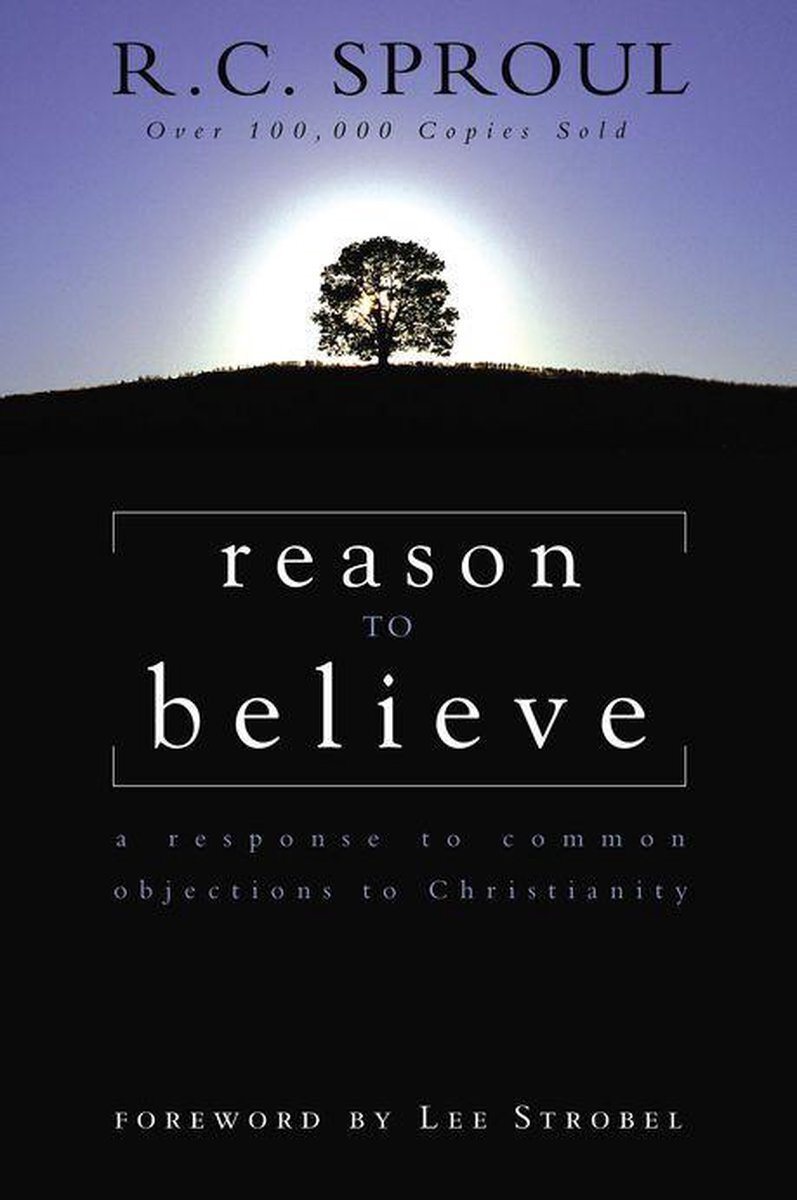Reason to Believe
Things I Highlighted is a bulleted list of particular sentences in a book that stuck out to me. These cannot be viewed as general summaries of books, but rather parts of books that struck me in a way that demanded more of my attention. Typically I share one thing I highlighted from each chapter, so they will appear in the same order they appear in the book. This version of Things I Highlighted will cover Reason to Believe, a book written by R.C. Sproul that offers biblical responses to common objections to Christianity.
Reason to Believe
Chapter 1: "The Bible contradicts itself. It's just a fairy tale."
It is ironic that the two Testaments are so often placed in contrast to each other. The irony may be seen in light of the cross. It is the cross of the New Testament that reveals the most violent and mysterious outpouring of the wrath of God that we find anywhere in Scripture. Here an innocent man does suffer but only after He willingly takes upon Himself, by imputation, the sins of the world. Without this act of wrath there is no grace. But it is precisely through this act of wrath that grace is made available.
Chapter 2: "All religions are good. It doesn't matter what you believe."
It is a mistake, indeed a fatal mistake, to assume that God is pleased by "religion." The cliché that "it doesn't matter what you believe as long as you are sincere" involves a devastating error. We can be sincerely wrong and miss the way of redemption offered by God. What we believe in and who we believe in makes an ultimate difference to our destiny. "Religion" can be a substitute for truth; a man-made system of distorting the revelation of God.
Chapter 3: "What about the poor native who never heard of Christ?"
The question of the fate of the person who never hears of Christ is one that must be answered not only with words but by action as well. The action of mission must be prompted not by paternalism nor by imperialism but by obedience to the "sending" of Christ. All men need Christ, and it is the duty of the church to meet that need.
Chapter 4: "Christianity is a crutch for weak people."
When we are dealing with the question of the existence of God, we are dealing with an issue in which we all have an ultimate vested interest. No one can deal with the question with a totally dispassionate attitude; there is too much at stake.
Chapter 5: "The Church is full of hypocrites."
For a Christian to be a Christian, he must first be a sinner. Being a sinner is a prerequisite for being a church member. The Christian church is one of the few organizations in the world that requires a public acknowledgement of sin as a condition for membership.
Chapter 6: "I don't need religion."
Repentance and faith are not unnecessary options with God. His grace comes with demands. For one who has experienced the grace of forgiveness those demands become opportunities for a display of gratitude. Our response to grace is obedience. The motive for obedience is not to enter the Kingdom but to honor the King who has already granted us access into His Kingdom. The sum of theology is grace. The sum of ethics is gratitude.
Chapter 7: "There is no God!"
What are the chances that the universe was created by the power of chance? Not a chance.
Chapter 8: "If there is a God why is there so much evil in the world?"
While we cannot explain the existence of evil, that is no reason for us to disregard the positive evidence for God. To deny what we do know on the basis of what we don't know is not only bad theology but bad science as well. The case for the existence of God must rely on other grounds than the moral issue of good and evil.
Chapter 9: "Why does God allow suffering?"
The question they should have asked in not "Why did God allow these innocent people to die by having a tower fall on their heads?" Rather, the question they should have asked is: "Jesus, why didn't that tower fall on me?" We are puzzled and bewildered whenever we see suffering in this world because we have become accustomed to the mercy and the long-suffering of God. Amazing grace is no longer amazing to us. So our astonishment is in the wrong place.
Chapter 10: "When you're dead you're dead! There is no more!"
Your labor is not in vain. That is the essence of the New Testament message. Death is not ultimate. The answer of the Raven is "Nevermore." The answer of Christ is "Forevermore."
